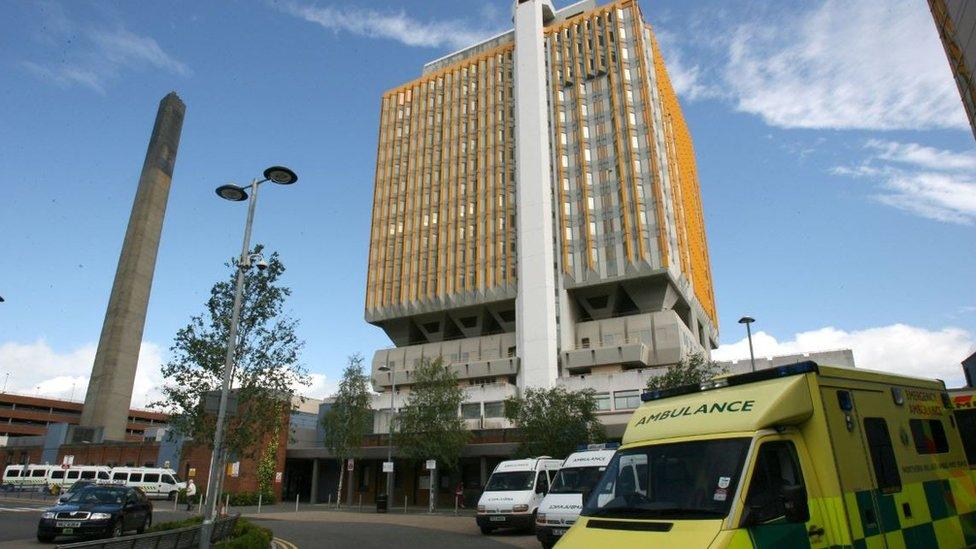Coronavirus: Robin Swann did not make NI best-case scenario public
- Published
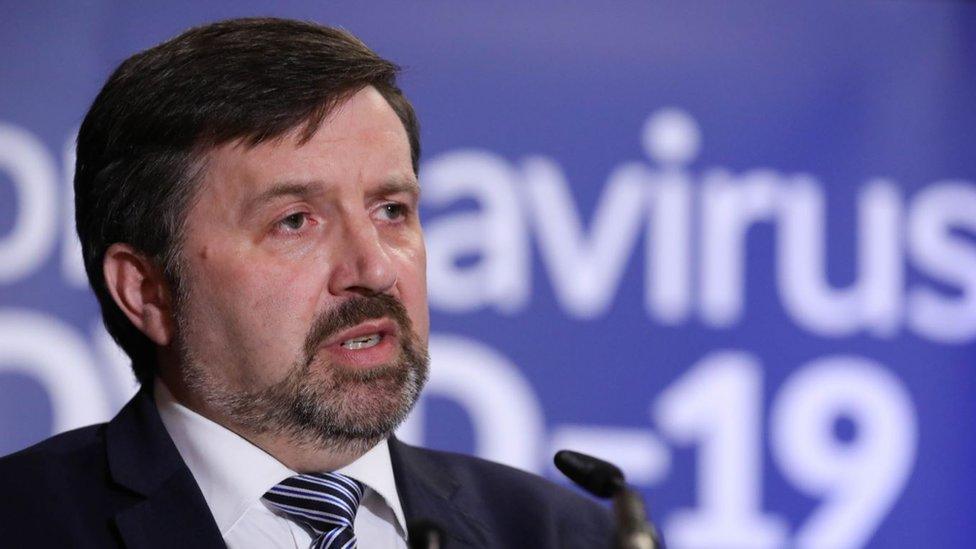
Robin Swann did not want the public to have a false sense of security
NI's health minister decided not to make public the best-case scenario laid out in pandemic modelling, a BBC Spotlight investigation has revealed.
A leaked executive document showed that Robin Swann chose to keep the scenario secret to try to ensure public adherence to the lockdown.
On 1 April, Mr Swann shared some of what new scientific modelling of the pandemic said.
It said 3,000 people could die in a "reasonable worst-case scenario".
What Mr Swann did not say was that the modellers put the best-case scenario at just 250 deaths.
The leaked document revealed that Mr Swann chose to keep that information secret - he said he feared if the scenario was published, the public will have a false sense of security.
He asked other executive ministers to back his strategy.
The modelling described the best-case scenario as "not realistic".
But the number of people who have died in the pandemic, 757 as of last Friday according to the Northern Ireland Statistics and Research Agency (Nisra), external, is closer to the best-case scenario than any Mr Swann has publicly aired.
On Wednesday, Mr Swann described the leak of the document as frustrating.
"It's disappointing. It's party politics. It will not put me off the focus I have on making the health service work for the people of Northern Ireland, " he told BBC's Good Morning Ulster programme.
"The question that is in my mind is what do people get from leaking a document? It's either trying to undermine me, the position or some work that has been going on in the health service."
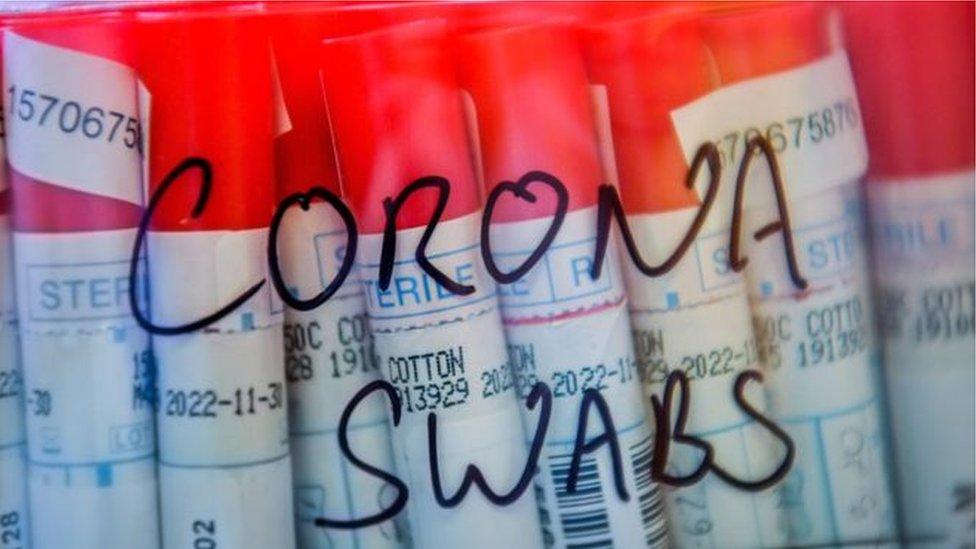
The health minister's decision to share only the reasonable worst-case scenario has been criticised
The Department of Health said Mr Swann relayed key information to be frank about the scale of the threat and not to create undue alarm.
On 19 March, Mr Swann said the surge coming towards Northern Ireland was of "biblical proportions".
He said 14,000 people could die in a "nightmare scenario" if there was no compliance with social distancing.
On 1 April, the scientific modelling said 14,000 deaths was the "worst-case scenario" and was not realistic.
The health minister has not shared that information with the public either.
Mr Swann's decision to share only the reasonable worst-case scenario has been criticised by Tracey Brown, director of the charity Sense About Science.
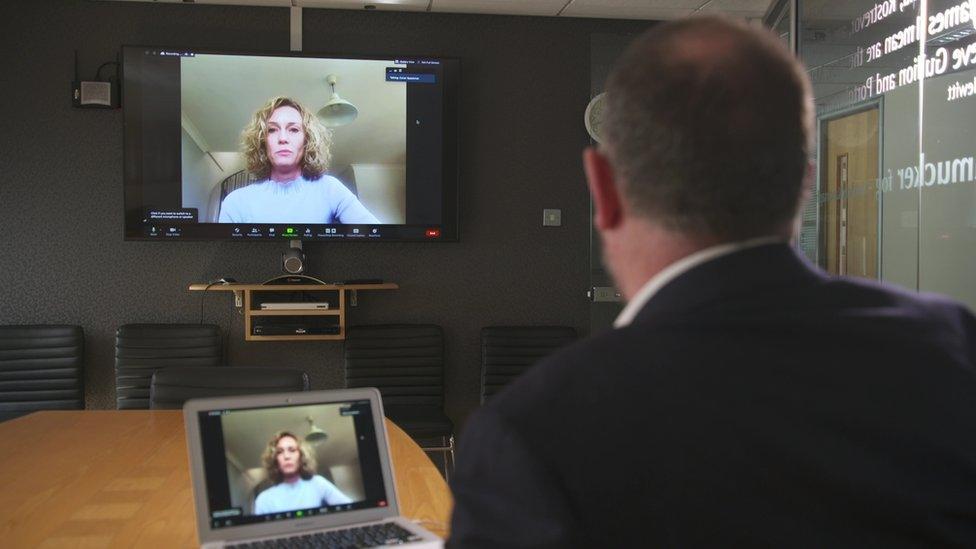
Tracey Brown said people needed to see the range of scenarios
It campaigns for greater transparency in how science informs policy.
"What people really need to see is the range of scenarios that there are," Ms Brown said.
"Now that's for a number of reasons - one is just straightforward honesty, levelling with people so that the real world that they're experiencing, the number of deaths, the number of cases, actually maps for them onto what they're hearing from public health advice.
"This insistence on a worst-case scenario approach tells us something rather worrying about the way in which government is viewing the public, because at a time when they are asking the public really to trust them, what they're also saying is that we don't trust you."
The Department of Health said publishing the best and worst cases - both deemed unrealistic - would have sent out mixed messages at a crucial time.
According to the latest report from the Northern Ireland Statistics and Research Agency (Nisra), there have been 757 deaths linked to coronavirus , externalin Northern Ireland up to 29 May. These figures record all fatalities where Covid-19 was mentioned on a death certificate.
No new Covid-19 deaths were recorded in Northern Ireland for the third day in a row, according to the Department of Health on Tuesday, external.
The department's death toll, comprised mostly of hospital deaths and where a patent had previously tested positive for the virus, stands at 537.
You can watch Spotlight on the BBC iPlayer by clicking this link.
- Published9 June 2020
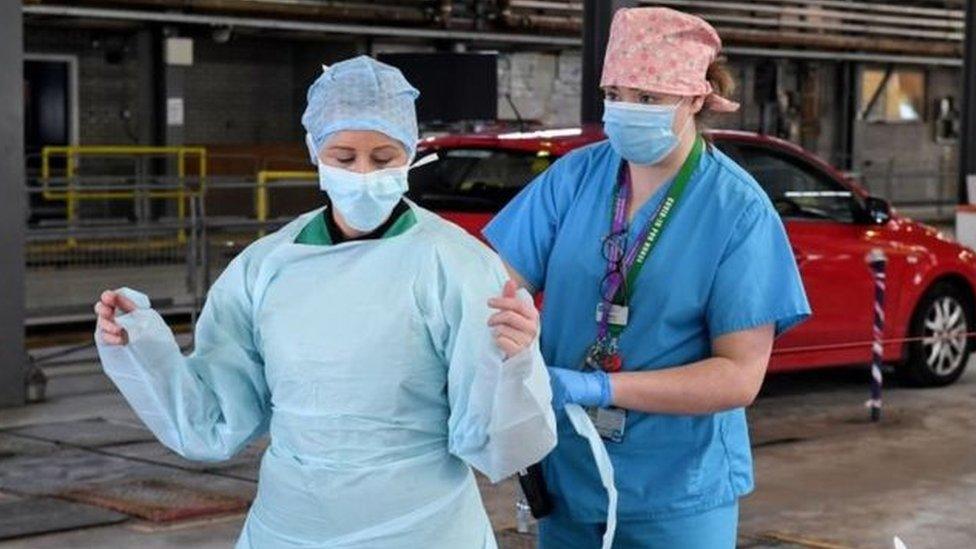
- Published9 June 2020
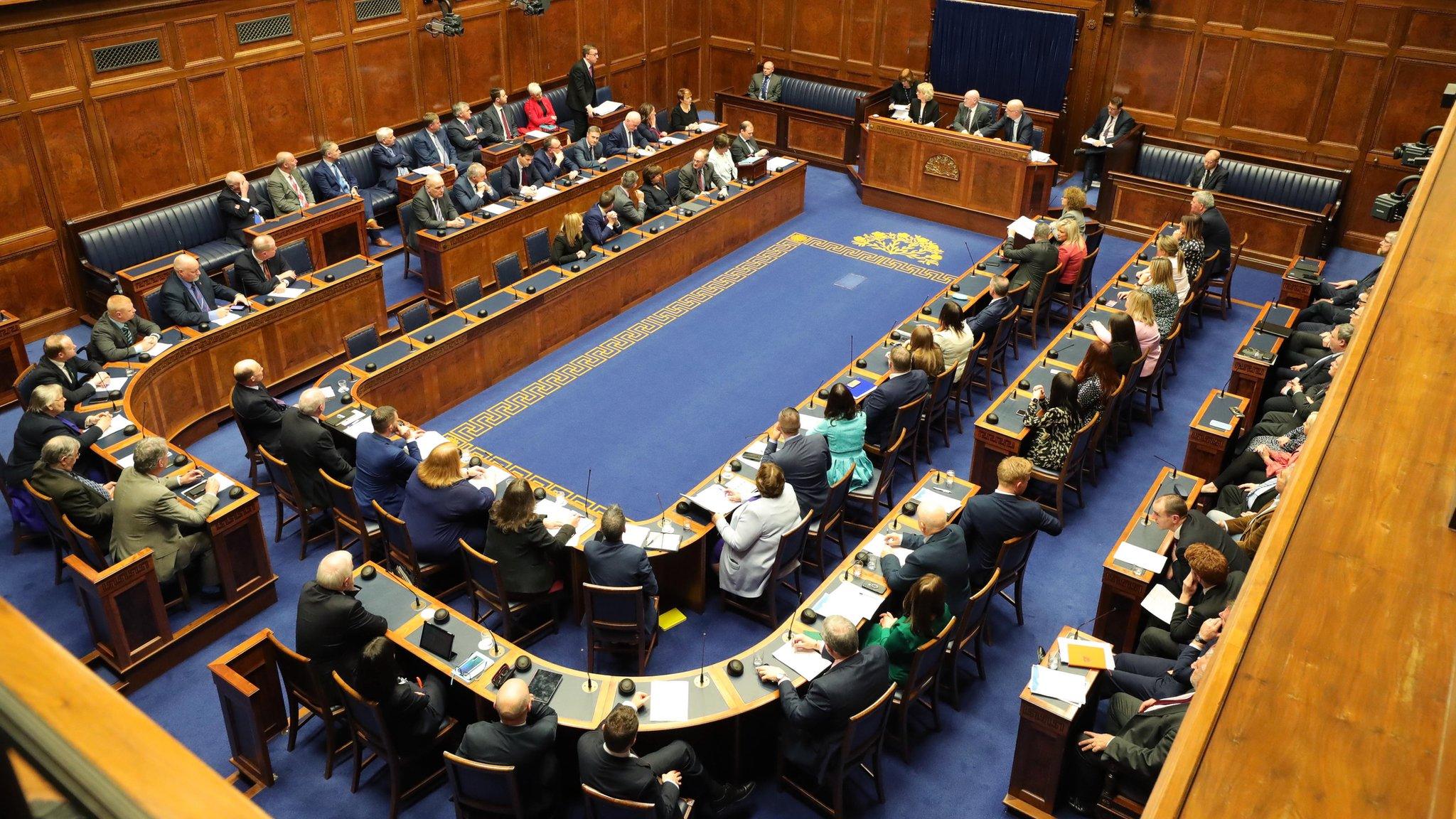
- Published13 May 2020
